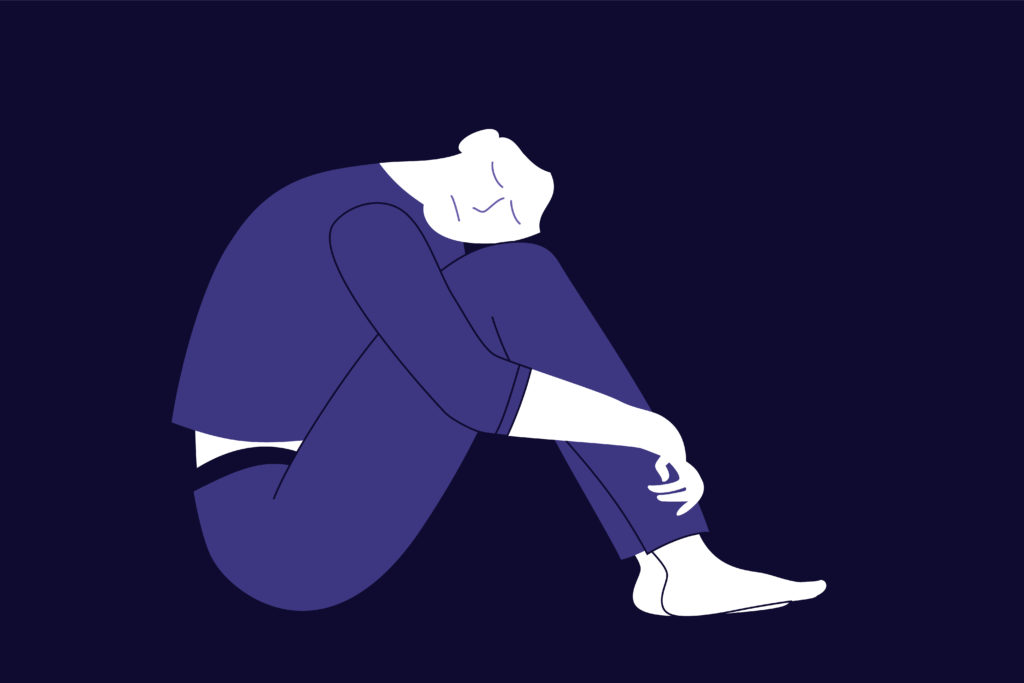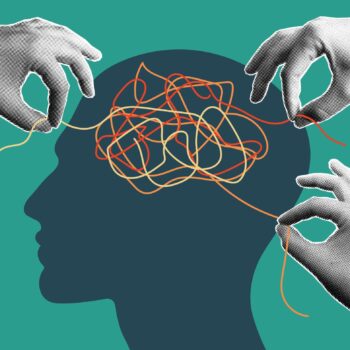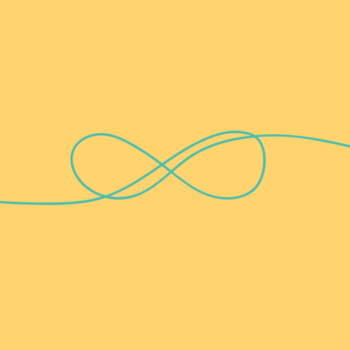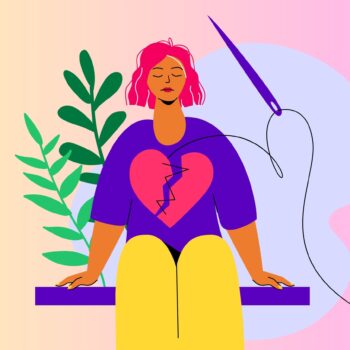Comparing Grief and Why We Shouldn't do It
/ General : Eleanor Haley
For further articles on these topics:
Grief-friends - this is a simple article about comparing grief and why you shouldn't do it. The grief-comparison game is common among people who've experienced loss, and unfortunately, it's a competition everyone loses.
I'm worried this may come off as a lecture, so I want to say upfront that most people, us included, naturally get caught up in comparisons. We're accustomed to learning about life by watching the people around us. We use our family, friends, and community members as reference points to better understand and define ourselves.
So sure, when we experience a loss, many of us find ourselves comparing our grief to others' and our perception of their loss experiences. The problem is, you cannot compare grief and loss in the same way you might equate measurable facts like weight and height. Grief isn't objective or quantifiable, and one doesn't undergo specific amounts of suffering, depending on the type of loss they experience.
Grieving people generally have one thing in common; they've experienced loss. Beyond this, their experiences vary widely because grief is a subjective experience influenced by many factors. To focus on comparing grief only the basis of nature or type of loss, and ignore the many other significant factors related to the grieving person and who or what they lost, is an error in reasoning.
There's danger in placing losses on a grief hierarchy because, ultimately, a person or group of people gets relegated to "less than" status. Sadly, in the context of grief, the "less than" label can come with a lot of baggage, like the implication that someone is less than deserving of support or less than justified in feeling and acknowledging their grief.
We all experience loss throughout our lives. Some losses are relatively easy to cope with and integrate, and some turn our lives inside out. Regardless of where the experience falls on the spectrum - loss is loss, and grief is grief. Loss and grief don't have to be severe enough to be acknowledged as such, and there's no threshold one has to meet to feel grief-like things.

All grief is important. All grief can exist.
Grief is a universal human experience, and yet, it's always different from person to person. So grief feels immensely significant and remarkable to the individual, but it's also no more or less important than anyone else's in the grander scheme. Ahhh...grief is such a paradoxical experience.
Of course, most of us, on some level, want the depth of our pain to be validated or recognized because that is our truth. Loss can be a world-shattering experience, and some people find the notion that their life-altering experience could be placed in the same category, and maybe even share some similarities, with losses they deem as being "small" feels almost offensive.
But grief doesn't need to be any worse than anyone else's for it to be valid, significant, special, or important. Someone's grief over losing a job, dream, relationship, or pet may seem different or more manageable than your own - but their loss doesn't cease to exist simply because it could be worse. Further, the existence of someone else's loss has no bearing on your own suffering. It's just something someone else is feeling. There's enough room in the world for all the love and all the pain.
Comparing grief only seems to draw unnecessary boundaries between people who are otherwise in a position to empathize and support one another. No, you can't know what anyone else is going through, but you can understand what it is like to feel that kind of suffering because you've felt it too.
If there's any benefit we can take from grief being a universal experience, it should be that we're able to have compassion and empathy towards what others are going through. And we know the value of honoring and respecting the significance of each other's losses.

We invite you to share your experiences, questions, and resource suggestions with the WYG community in the discussion section below.
We wrote a book!
After writing online articles for What’s Your Grief
for over a decade, we finally wrote a tangible,
real-life book!
What’s Your Grief? Lists to Help you Through Any Loss is for people experiencing any type of loss. This book discusses some of the most common grief experiences and breaks down psychological concepts to help you understand your thoughts and emotions. It also shares useful coping tools, and helps the reader reflect on their unique relationship with grief and loss.
You can find What’s Your Grief? Lists to Help you Through Any Loss wherever you buy books:





Diane January 22, 2022 at 9:40 am
Hello, I am grieving also.
Jeff August 31, 2021 at 9:45 pm
I read this piece some months ago, and it made me angry. I could not find the right words to respond at the time, but I wanted to try again. I think I understand what you are saying, and sure, all losses can be difficult – a pets loss can be sad, no doubt. But I found, after the death of my son, that people saying things like “yes, I have suffered loss too, my grandmother died a few years ago, she was 82 years old” to be unhelpful and, to be honest, quite offensive. My parents and grandparents had died too – I was sad, but it felt very different – much worse – when I lost my eldest child. Maybe that’s just me. Perhaps you really believe that the death of a child is equivalent to the death of a dog? You have a similar article posted a few years ago. A woman responded to that in obvious pain by saying her child’s death was in fact “the worst”, and the responses to her by commenters and a site admin were not at all compassionate – they were nasty, stupid, and vicious, in my opinion. Do you consider the hurt you might cause by asserting that the loss of a child is no worse than any other loss?
Litsa September 6, 2021 at 10:45 am
Jeff, thank you so much for taking the time to come back and comment. I’m sorry to hear this sat with you for so long! It is interesting, because in many ways we seem to agree – your anger that people would dare compare the loss of a dog to the death of your child filled you with deep anger – and understandably so. This is the very problem we are pointing to – the moment that people compare losses, the only thing that is accomplished is typically hurt and alienation. You seem to suggest that our saying people shouldn’t compare losses that we are saying that all losses are the same. You say we are asserting that the loss of a child is no worse than any other loss when nothing could be further from the truth – what we are saying is exactly the opposite, We are saying that all losses are massively and uniquely different. Some losses cause tremendous amounts of grief. Others cause very small amounts of grief. And everything in between. The loss of a child almost always causes devastating and excruciating grief far beyond that of many other types of losses. These differences in grief are felt in ourselves, between our losses (for example, one might know they death of their spouse was more or less devastating than the death of their parent, or vice versa). Then there are differences between people (for example, just because a friend and I both lost a sibling to an overdose, this does not mean the impact of our grief will be the same. I may have had a closer or less close relationship with my sibling. I might have more or less social support. One of us may have witnessed the overdose, whereas the other didn’t, so though the loss appears the “same” the grief is much worse for one of us than the other). There are infinite reasons why – the closeness of the relationship, the nature and quality of the relationship, the cause of death, the other life circumstances, and on and on and on. As a grief therapist, in one day I might see a father who lost his 32 year old son together with his daughter, the son’s twin sister, and the son’s wife and son. I might then see a woman who has just had her fifth miscarriage and been told she will not be able to have children, followed by an 82-year-old woman with no children or living family who has just lost her husband of 55 years, and then a 17-year-old boy who found his mother after she died by suicide. These losses are absolutely devastating, each in their own way and their own right. I can tell you that each of these losses is uniquely different and some of these people are more deeply impacted by their grief than others. I would never, ever suggest their losses are the same and no worse than one another. But could I predict in advance who and why? Absolutely not. After going through personal loss and working with thousands of people grieving, there is no equation by which to say “people who lose a loved one to suicide always grieve more than those who lose a loved one to cancer” or “people who lose a spouse always grieve more than those who lose a sibling”. There are countless variables. Were that 82 year old to say to everyone else, my grief is the worst because I have no other family and lost my partner, or the 17 to say my grief is the worst because my mom killed herself and I witnessed it, or that father to say my grief is the worst because the death of a child is always the worst grief, I would never know who was “right”, but more importantly, what good would that comparison serve? It would not lessen any of their grief to know that their grief was the “worst” and it make each of the others grieving feel that their loss was being minimized. Do most parents who lose child say it is their worst loss? Yes, absolutely. But do some say, for many complex reasons, that they suffered other losses that were more difficult? Yes, they do – that isn’t speculative, that comes from our direct work with thousands of people grieving. Do some people share that the loss of a loved one to a suicide or to a homicide was their worst loss? Yes, absolutely. But again, not always. Were we to suggest that we can compare and determine who has the “worst” loss is to create the same hurt one creates when suggesting that they can compare the death of their dog to someone else’s loss of a child. When we accept that losses are radically different and there is no objective system to quantify grief, we have decided that leaves us in a place where the most important thing we can remember is that for each individual person, their loss is THEIR worst loss. You absolutely do not have to agree with this philosophy. We understand that there are and always will be people who disagree with us and believe that a death by suicide, or the death of one’s only remaining family member, or the death of a child, or the death of a parent at a young age, will always be the “worst” type of grief, no matter all the other factors. We all have to come to our own conclusions about this. This is the conclusion that we have come to from our own grief and our own work in this field, but we respect that this is not the only way to think about it. Thank you again for sharing your thoughts and concerns with us. It always helps us to be more thoughtful and understanding.
Sheila Edwards December 5, 2020 at 2:57 pm
I found this article to be very enlightening. I am always making excuses for my grief & that others have more grief than I do. So I should stop complaining & get on with it! It’s as if I am not allowing myself to grieve. I suffer from depression & so when I am down I crawl into my hole & stay there. This yr I lost my Mum in LTC. My Dad in 2018. My husband John & I have lost 11 friends from January to November so far. It has been a tough year. It’s so difficult to be positive when you experience death over & over. We have our faith, friends & our Cockapoo Penny to support us. That is a blessing!
IsabelleS December 7, 2020 at 10:42 am
Sheila, I’m so sorry for the losses you have been forced to endure. You’re right… There is no use in making comparisons! That being said, it’s so normal to compare and to want to invalidate our own right to grieve. No matter what, please know that your grief is completely valid. I’m glad you can count your blessings even in the face of such losses. All the best to you.
Ellen December 3, 2020 at 1:55 pm
This website has been a lifesaver for me. And this particular article was so spot on and helpful.
Throughout the last 25 years, I have experienced every type of loss there is. Both parents, a child, beloved friends and much loved and cherished pets. Yes, some people simply can’t comprehend someone mourning the loss of their pets. And even though he didn’t pass away, I mounted the loss and the end of a 25 year marriage. The betrayal, lies and deceit was equally painful and truly a death as well.
I have come to learn and accept that grief is universal and a road that all of us must travel at one point or another. It is also very personal, and nobody can tell you….”hasn’t it been long enough.” I’m sure we have all heard that.
Even though we find a way to carry on with our lives, because we must, more often than not the pain never leaves us. And this time of year is particularly hard.
I do my best to be compassionate and understanding of anyone who is grieving, regardless of the circumstances.
Thank you so much for this website. It has truly made a difference.
IsabelleS December 4, 2020 at 1:59 pm
Ellen, I’m so glad to hear that this website has brought you some comfort! Thank you for taking the time to comment and to share your story/perspective. I’m truly so sorry to hear about the multiple losses you experienced. It sounds as though you are navigating grief with grace. All the best to you!
Lynn Bennett December 3, 2020 at 12:32 pm
I am a suicide loss survivor of a little over three years, and facilitate a suicide loss specific support group. In a recent meeting the topic of discussion turned to the word “grief” as it is being used in media this year to explain how the country is dealing with life before and after Covid, i.e ‘the new normal’. Most of us found we were offended by this as it feels like an appropriation of a very specific word which should stay within the realm of this who have actually lost someone. Using it to describe a general loss of normalcy (which will eventually return, in a way our loved one will not) just felt rotten to most of us.
Wendy December 3, 2020 at 11:20 am
Thank you for this. Such a difficult topic.
Carmella L Russell December 2, 2020 at 9:48 pm
So very true!